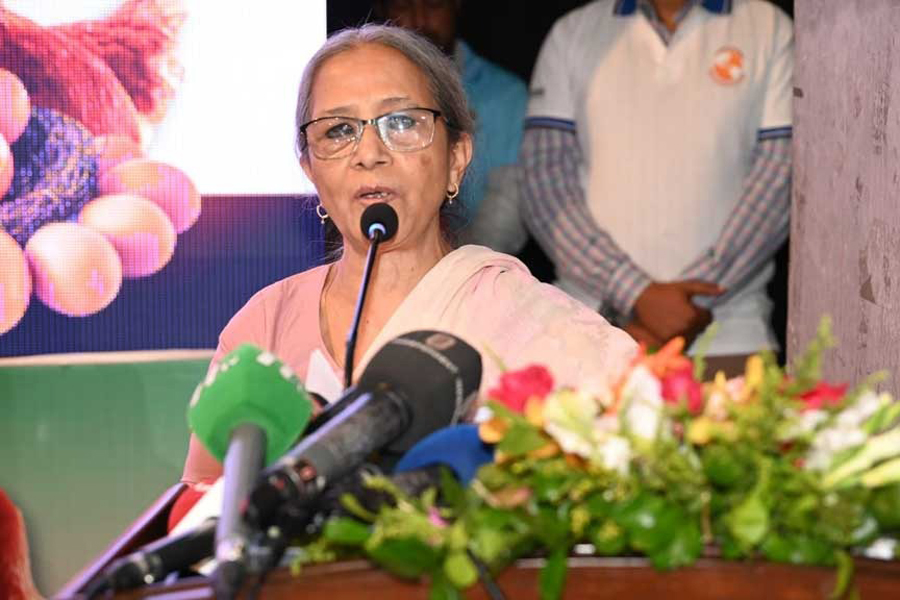
Published :
Updated :

Fisheries and Livestock Advisor Farida Akhter believes that manipulation may be involved in the recent hike in prices in the egg market.
She made the remark while speaking as the chief guest at a World Egg Day event in Dhaka’s Khamarbari on Friday.
World Egg Day is celebrated on the second Friday of October every year.
A month after the fall of the Awami League government on Aug 5, the prices of various daily products, including eggs, vegetables and fish, suddenly increased. Meanwhile, the price of eggs has gone up to Tk 15 per piece.
The price began to decrease gradually since Oct 7 after news that the government had approved egg imports. Eggs are now available in the market for Tk 13 - Tk 13.50 each.
Advisor Farida said she could not find a reason for the price hike.
Seventy percent of the price of eggs depends on feed cost and the cost of feed had not gone up during this period, she noted.
She said there was manipulation involved and said that such manipulation of the market should be considered a crime.
Farida said that media reports say that egg prices are dropping due to imports, which shows some manipulation was involved and some quarter had driven up the price artificially.
However, the advisor, who was part of the agriculture movement before becoming a member of the government, noted that there were some other causes for the high price in the market.
“The egg market was destabilised. The volatility in the egg market started making headlines. This is also a reason for the price increase. Some farmers say that their farms have been destroyed by flooding. That’s also true. This is a bad time in our country in terms of food availability. Vegetable production has dropped due to floods. This has put more pressure on the egg market too.”
The advisor also expressed her desire to increase production of eggs and keep prices affordable to make eggs, a nutritious food, easily available to common people.
“In Bangladesh, if every person eats 136 eggs a year, some eat more, some eat less. This is discrimination involving eggs. Why should there be such a disparity after the anti-discrimination movement? Eggs must be made affordable to all, irrespective of class. This is also a reason for our efforts to reduce prices.”
Mentioning that raising chickens and eggs was once an opportunity for village women to make money, she said that initiatives should be taken to once again popularise that trend.
“Women in the village kept chickens and sold the eggs themselves instead of selling the chickens through their husbands. They kept the money to themselves. That system is less prevalent now. A source of income for women is diminishing. The Ministry of Fisheries and Livestock should consider this - can a simple arrangement be made to encourage village women to raise poultry and buy from them?”
She also spoke of the need for an egg distribution project among primary school students for national nutrition development.
“We are thinking about adding eggs as a mid-day meal for primary school children in the future. It is also the responsibility of the government to ensure the nutrition of the poor population. Those of you who are part of big companies can also distribute eggs to hospitals as part of CSR [corporate social responsibility].”


 For all latest news, follow The Financial Express Google News channel.
For all latest news, follow The Financial Express Google News channel.